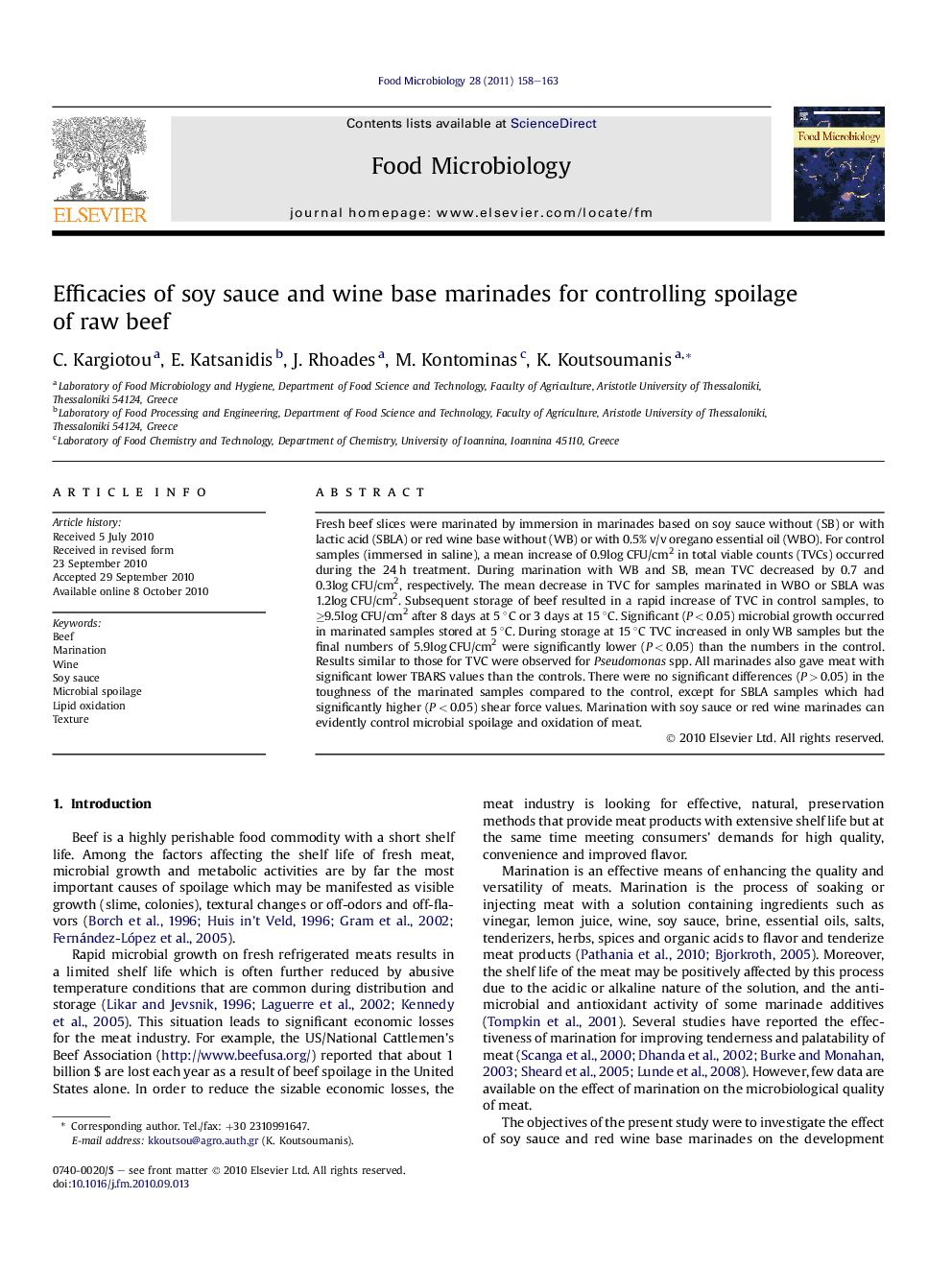| Article ID | Journal | Published Year | Pages | File Type |
|---|---|---|---|---|
| 4363222 | Food Microbiology | 2011 | 6 Pages |
Fresh beef slices were marinated by immersion in marinades based on soy sauce without (SB) or with lactic acid (SBLA) or red wine base without (WB) or with 0.5% v/v oregano essential oil (WBO). For control samples (immersed in saline), a mean increase of 0.9log CFU/cm2 in total viable counts (TVCs) occurred during the 24 h treatment. During marination with WB and SB, mean TVC decreased by 0.7 and 0.3log CFU/cm2, respectively. The mean decrease in TVC for samples marinated in WBO or SBLA was 1.2log CFU/cm2. Subsequent storage of beef resulted in a rapid increase of TVC in control samples, to ≥9.5log CFU/cm2 after 8 days at 5 °C or 3 days at 15 °C. Significant (P < 0.05) microbial growth occurred in marinated samples stored at 5 °C. During storage at 15 °C TVC increased in only WB samples but the final numbers of 5.9log CFU/cm2 were significantly lower (P < 0.05) than the numbers in the control. Results similar to those for TVC were observed for Pseudomonas spp. All marinades also gave meat with significant lower TBARS values than the controls. There were no significant differences (P > 0.05) in the toughness of the marinated samples compared to the control, except for SBLA samples which had significantly higher (P < 0.05) shear force values. Marination with soy sauce or red wine marinades can evidently control microbial spoilage and oxidation of meat.
Research highlights►Soy sauce and red wine marinades can control spoilage microorganisms of raw meat.►Soy sauce and red wine marinades reduce lipid oxidation and do not affect texture of meat.►Soy sauce and red wine marinades can be used as means for the application of antimicrobials.
